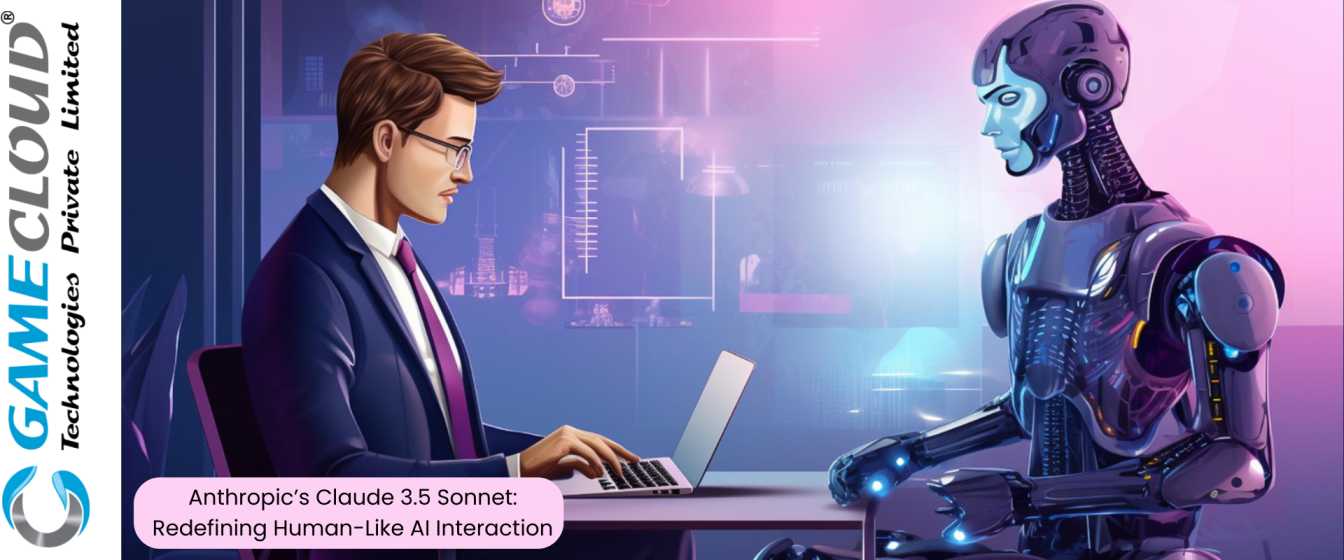
Anthropic’s latest update, Claude 3.5 Sonnet, introduces a feature that could reshape AI’s role in human-computer interaction: the ability to directly use computers, a first for public-facing AI models. This “Computer Use” capability allows Claude to handle complex tasks by interacting with software as a human would, enabling it to navigate digital interfaces, open applications, and even fill out forms. Unlike conventional automation, Claude 3.5 Sonnet is not confined to pre-programmed workflows; instead, it adapts to various tasks by “seeing” and interacting with screens in real-time, making it a powerful tool across industries, from customer support to legal services.
A New Era in AI-Assisted Automation
Claude’s computer interaction is poised to impact workflows that rely on multitasking across systems. For example, in customer service, Claude could retrieve and update records in CRM systems or fill out complex forms by gathering data from multiple sources. Early adopters are exploring ways to integrate this feature to speed up processes such as testing, design, and support. Replit’s coding platform sees Claude’s potential as an “autonomous verifier,” enhancing productivity by testing applications while they’re being built. Canva aims to streamline design tasks, allowing their team to save valuable time and effort.
This breakthrough moves AI beyond textual and speech-based assistance by providing developers with an API to incorporate Claude’s computer interaction into various applications. This opens doors to creating dynamic tools that automate tedious processes—like data entry or multi-step data analysis—and assists with complex research tasks. For companies focusing on RPA (robotic process automation), Claude’s versatility provides an alternative to traditional automation, handling diverse applications without custom coding for each task.
Key Features and Potential Use Cases
- Dynamic Screen Interaction: Claude can type, click, and navigate screens, allowing it to conduct tasks typically handled by humans. This could be transformative for industries that rely on repetitive tasks, such as data entry and research, as Claude can switch between applications to gather and process information.
- Broad Application Scope: Available through the Anthropic API, Claude’s capabilities are accessible to businesses on Amazon Bedrock and Google Cloud’s Vertex AI. This versatility positions it as a valuable tool for developers across various industries, allowing for creative applications in customer support, legal document processing, and software development.
- Enhanced Reasoning and Accuracy: With improved benchmarks in coding, reasoning, and visualization, Claude 3.5 Sonnet offers more accurate task handling, providing significant time savings for businesses needing to process complex data or manage multi-step workflows.
Security and Privacy Measures
Despite the exciting potential, Anthropic is cautious with this powerful feature, currently offered in a public beta. To ensure responsible usage, developers must configure Claude’s screen interaction through specific tools, preventing unrestricted access to user devices. This approach minimizes risks related to data privacy, and additional classifiers are in place to detect misuse, particularly when Claude navigates sensitive information. By maintaining control over Claude’s access, Anthropic addresses potential security concerns, providing a balance between innovation and user safety.
Empowering Innovation: Ankatmak’s AI Solutions Tailored for Non-Gaming Industries
At Ankatmak, we specialize in AI-powered solutions and IT consultancy, focusing on all kinds of industries while leveraging our parent company GameCloud Technologies‘ extensive tech expertise. We deliver custom software development, data analytics, and AI tools like chatbots, AI training services and even human resources to work as AI powered virtual assistants. Our commitment is reflected in our unique model: clients only pay after service satisfaction, with options for free pilot projects. This results-oriented approach and our diverse team enable us to provide innovative, reliable solutions tailored to meet each client’s needs.
Looking Ahead
The Claude 3.5 Sonnet update hints at a future where AI can seamlessly integrate into complex digital workflows, revolutionizing how businesses approach digital work. As Claude’s capabilities evolve, we can expect even greater advancements in automation and productivity, especially as more industries adopt this technology to streamline processes. With continued feedback from the beta program, Anthropic aims to refine Claude’s interaction capabilities, paving the way for a new era in AI-driven computer use that could redefine office automation and digital interaction for years to come.
For Know More Contact-Now
FAQs for: Anthropic’s Claude 3.5 Sonnet: Redefining Human-Like AI Interaction
What is Claude 3.5 Sonnet and how does it differ from previous AI models?
Claude 3.5 Sonnet introduces a revolutionary “Computer Use” feature, allowing AI to interact with digital interfaces, open applications, and perform tasks like a human. Unlike previous models, it can dynamically navigate software and fill out forms in real-time.
What are the main benefits of Claude 3.5 Sonnet for businesses?
Claude’s ability to perform complex tasks, such as data entry and multi-step workflows, can save businesses time and increase productivity. Its dynamic screen interaction allows it to handle tasks that traditionally require human input, especially in industries like customer support and legal services.
How can developers use Claude 3.5 Sonnet?
Claude is accessible through the Anthropic API and can be integrated into various applications, making it useful for automating processes in customer support, software development, and data analysis. Developers can utilize it on platforms like Amazon Bedrock and Google Cloud’s Vertex AI.
What security measures are in place to protect users when using Claude 3.5 Sonnet?
Anthropic ensures security by limiting Claude’s screen interaction to specific tools, preventing unrestricted access to user devices. This controlled environment helps minimize privacy risks and ensures responsible usage, with additional classifiers to detect misuse.
What industries are best suited for implementing Claude 3.5 Sonnet’s capabilities?
Claude’s versatility makes it ideal for industries that require automation of repetitive tasks, such as customer service, legal document processing, and research. It can also enhance workflows in software development, design, and data analysis, offering time-saving solutions across various sectors.
